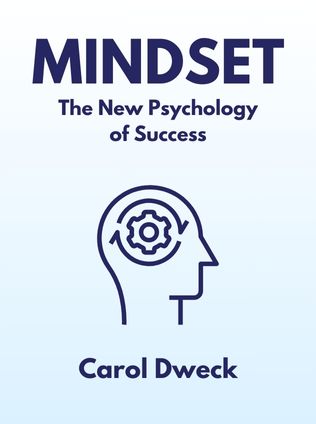
Mindset
The New Psychology of Success
By Carol Dweck
Published 02/2006
About the Author
Carol S. Dweck, Ph.D., is a leading researcher in the field of motivation and is the Lewis and Virginia Eaton Professor of Psychology at Stanford University. Her research focuses on why people succeed and how to foster their success. Dweck has lectured to business, education, and sports groups all over the world and has been elected to the American Academy of Arts and Sciences. Her work has been prominently featured in publications such as The New Yorker, Newsweek, Time, The New York Times, and The Wall Street Journal. Her book Mindset: The New Psychology of Success has been widely acclaimed and translated into 19 languages.
Main Idea
Carol Dweck's groundbreaking work in Mindset: The New Psychology of Success centers around the concept of two fundamental mindsets: the fixed mindset and the growth mindset. According to Dweck, individuals with a fixed mindset believe that their talents and abilities are set in stone. This leads to a constant need to prove themselves, often resulting in stagnation and frustration. In contrast, those with a growth mindset understand that talents can be developed and that abilities can be cultivated through effort and perseverance. This mindset fosters a passion for learning and resilience, which are crucial for achieving success.
Table of Contents
- Introduction
- The Mindsets
- Inside the Mindsets
- Mindsets Change the Meaning of Effort
- The Truth About Ability and Accomplishment
- Sports: The Mindset of a Champion
- Business: Mindset and Leadership
- Relationships: Mindsets in Love (or Not)
- Parents, Teachers, and Coaches: Where Do Mindsets Come From?
- Changing Mindsets: A Workshop
- The Road Ahead
Introduction
Carol Dweck opens with a personal anecdote, revealing how her students inspired her to write this book. She introduces the powerful idea that people's beliefs significantly impact their lives, often without them realizing it. Dweck's research shows that even the simplest beliefs about oneself can have profound effects on one's ability to succeed and grow.
The Mindsets
Dweck delves into the two types of mindsets:
- Fixed Mindset: Individuals with a fixed mindset believe their abilities are static and unchangeable. This mindset fosters a constant need to prove oneself, leading to fear of failure and avoidance of challenges.
- Growth Mindset: Conversely, those with a growth mindset believe that abilities can be developed through effort and learning. This mindset encourages embracing challenges, persisting through obstacles, and viewing effort as a path to mastery.
"The view you adopt for yourself profoundly affects the way you lead your life." – Carol S. Dweck
Inside the Mindsets
Dweck provides an in-depth look at how these mindsets manifest in various aspects of life. She shares personal stories and research findings to illustrate how a fixed mindset can limit potential, while a growth mindset can unlock it. For example, she describes her own journey from a fixed to a growth mindset and how it transformed her approach to challenges.
She explains how a fixed mindset can create an urgency to prove oneself repeatedly. This mindset leads to questions like, "Will I succeed or fail? Will I look smart or dumb? Will I be accepted or rejected?" These questions hinder growth and achievement, making individuals focus more on validation than learning.
On the other hand, a growth mindset views challenges as opportunities to develop. It fosters resilience and a love for learning. Individuals with this mindset are not deterred by failure; instead, they see it as a stepping stone to improvement.
Sign up for FREE and get access to 1,400+ books summaries.
You May Also Like
The Subtle Art of Not Giving a F*ck
A Counterintuitive Approach to Living a Good Life
By Mark MansonRich Dad Poor Dad
What the Rich Teach Their Kids About Money - That the Poor and Middle Class Do Not!
By Robert T. KiyosakiHow To Win Friends and Influence People
The All-Time Classic Manual Of People Skills
By Dale CarnegieFreakonomics
A Rogue Economist Explores the Hidden Side of Everything
By Steven D. Levitt and Stephen J. Dubner



















